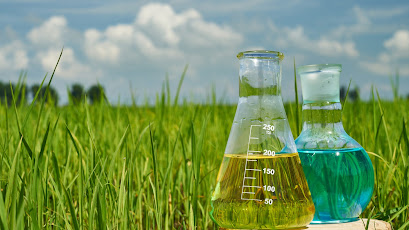Agrochemicals Market: Empowering Farmers with Tools for Yield Enhancement and Pest Management
Understanding Agrochemicals
Introduction
Agrochemicals play a vital role in modern agriculture by helping farmers
protect their crops from pests and increase crop yields. From pesticides to
fertilizers, agrochemicals have enabled farmers to grow enough food to feed a
growing global population. However, the extensive use of some agrochemicals has
also led to environmental and health concerns. In this article, we will explore
what agrochemicals are, their benefits and impacts.
What are Agrochemicals?
Agrochemicals refer to chemical products used in agriculture to protect plants
or improve crop growth. They include three main categories - pesticides,
fertilizers and other agrochemical products.
Pesticides are chemicals used to control or kill unwanted organisms such as
insects, rodents, fungi and unwanted plants that harm crops or livestock. They
include insecticides for insects, herbicides for weeds, fungicides for fungi
and rodenticides for rodents.
Fertilizers are agrochemicals that provide nutrients like nitrogen, phosphorus
and potassium to improve plant growth and increase crop yields. Common
fertilizers include urea, superphosphate and muriate of potash.
Other agrochemical products include soil conditioners that modify the physical
and chemical properties of soil, plant growth regulators that modify the growth
and maturation of plants, harvest aids that facilitate crop harvesting and
disinfectants that sterilize farming equipment, storage areas etc.
Benefits of Agrochemicals
Protection from pests: Agrochemicals help protect crops from being damaged or
destroyed by various insect pests, weeds and disease-causing organisms. This
protects farmers' livelihoods.
Increased crop yields: The application of fertilizers enriches soil nutrients
and maximizes plant growth, enabling higher productivity and greater crop
yields per acre. This boosts global food supply.
Low labor requirements: Agrochemicals reduce the need for manual labor in crop
management activities like weeding. They promote mechanized and efficient
farming practices.
Year-round availability: With the help of agrochemicals, many regions can
cultivate crops throughout the year by controlling factors limiting growth.
This ensures reliable food supply.
Improved farm income: Higher yields and the ability to cultivate more crops per
year improves farm incomes, empowering farmers economically.
Environmental and Health Impacts
Pollution concerns: Indiscriminate use and overuse of some agrochemicals like
pesticides can contaminate soil and water bodies through runoffs, posing risks
to aquatic life and groundwater quality.
Disruption of ecosystems: Strong and broad-spectrum pesticides may negatively
impact natural pest predators and disrupt the fragile balance in
agro-ecosystems. Over decades, this can reduce biodiversity.
Health hazards: Long-term exposure to certain pesticides has been linked to
health issues like cancer, neurological and developmental disorders in humans.
Livestock and farm workers are also at risk.
Antibiotic resistance: Widespread misuse of antibiotics in livestock feed
promotes resistance in pathogenic bacteria, undermining drug effectiveness for
treating infectious diseases.
Soil health issues: Excessive use of certain nitrogenous fertilizers can make
soil acidic over time while depleting micro-nutrients. This decreases long-term
soil fertility.
Mitigating the Impacts
Sustainable use: Farmers need to properly assess their fields and apply
agrochemicals judiciously as per recommendations. Indiscriminate, year-on-year
use must be avoided.
Integrated Pest Management: IPM strategies like crop rotation, resistant
varieties, conservation of natural enemies and judicious use of chemicals can
replace over-reliance on pesticides.
Organic farming: Complete avoidance of synthetic agrochemicals and adoption of
organic management practises maintains long-term soil health and protects the
environment. However, organic yields tend to be lower.
Waste disposal: Used agrochemical containers must be triple rinsed and
destroyed to avoid poisoning livestock or percolating into water sources during
rains.
Farmer training: Educating farmers about minimizing health and environmental
risks through application methods, safety gears and handling of agrochemicals
is crucial.
Regulations and policies: Strict regulations on agrochemical manufacture,
distribution and pricing along with banning of hazardous substances can promote
sustainable farming practices.
Conclusion
While agrochemicals have significantly boosted global food production,
excessive and indiscriminate use can also impair the environment and public
health if not managed properly. More sustainable solutions like IPM and organic
farming can address production needs along with ecological protection in the
long-run. With responsible policies, judicious application and alternative
strategies, we can maximize agrochemical benefits while minimizing their
negative fallouts.


.png)

Comments
Post a Comment